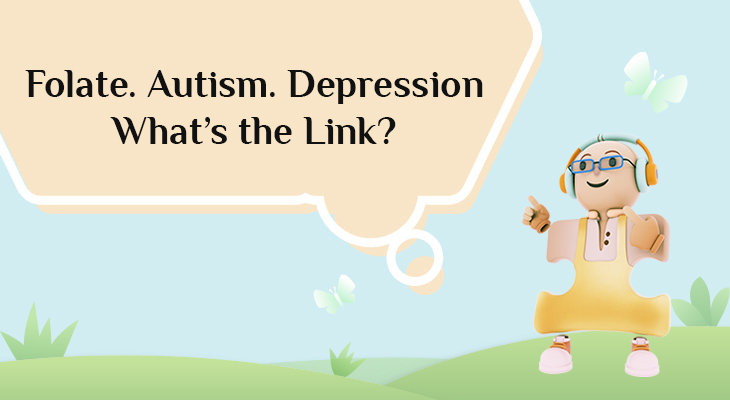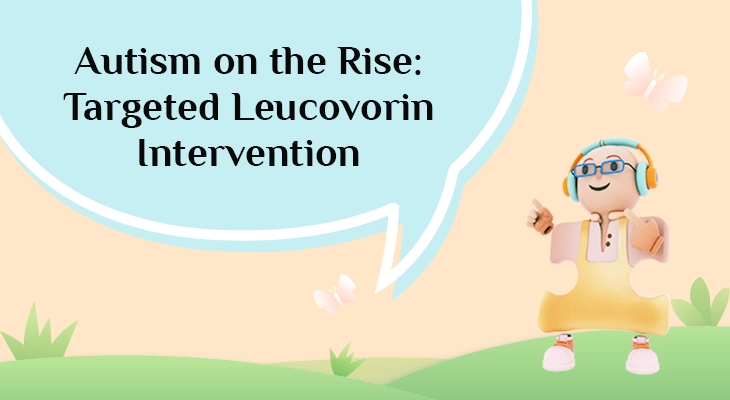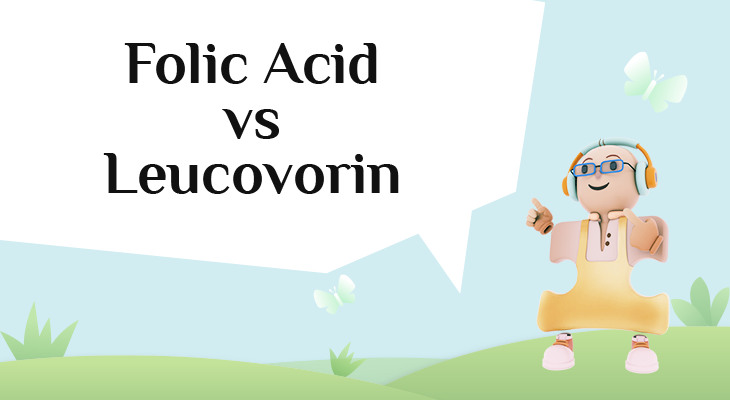
Introduction
Folate (vitamin B9) is a crucial nutrient involved in DNA synthesis, methylation, and neurotransmitter production. Deficiencies or disruptions in folate metabolism have been linked to both neuropsychiatric disorders, such as depression, and neurodevelopmental conditions (e.g., autism). Emerging research suggests that folate metabolism abnormalities may contribute to the overlapping biological pathways seen in depression and ASD.
Folate, Autism, and Depression
-
Role of Folate in Brain Function
- Folate, otherwise known as Vitamin B9 is essential for the synthesis of serotonin, dopamine, and norepinephrine—neurotransmitters critical for mood regulation. Serotonin, dopamine, and norepinephrine are key neurotransmitters that play crucial roles in regulating mood, motivation, and emotional stability. Their dysregulation is strongly linked to depression. Numerous studies have pointed this out.
- Folate also participates in one-carbon metabolism, which is necessary for DNA methylation and gene expression in the brain.
-
Folate Deficiency and Depression
- Low folate levels are increasingly recognized as a significant contributor to depression, particularly in cases of treatment-resistant depression. The connection involves neurotransmitter synthesis, methylation processes, and neuroplasticity, which are connected with vitamin B9 metabolism.
- Additionally, increased homocysteine levels, linked to low vitamin B9 have also been implicated in depression. Interestingly enough, MTHFR gene mutations, (e.g., C677T polymorphism), which ultimately reduce folate metabolism efficiency, have also been thought to increase depression risk.
-
Folate and Autism Spectrum Disorder (ASD)
- Folate (vitamin B9) plays a critical role in early brain development, and its deficiency during pregnancy has been linked to an increased risk of autism spectrum disorder (ASD). Prenatal folate deficiency is thought to lead to an increased risk of ASD in offspring, as indicated by numerous publications.
- Folate Receptor Autoantibodies (FRAAs) have been found in a large number of children with ASD, indicating a blocking of folate transport into the brain (cerebral folate deficiency, CFD). These folate receptor autoantibodies have also been found in patients diagnosed with depression. It is thought that CFD leads to low cerebrospinal fluid (CSF) folate, contributing to neurodevelopmental/ neuropsychiatric impairments.
-
Overlapping Mechanisms: How Folate Connects Depression and Autism
- There seem to be shared biochemical pathways between these two conditions. One of these would be related to methylation dysregulation. Both depression and ASD involve epigenetic modifications due to impaired folate metabolism. Oxidative stress also plays a role and ties in folate deficiency. Folate deficiency increases reactive oxygen species (ROS), damaging neurons in both conditions.
- Another common contributor is neuroinflammation. Abnormal folate metabolism may exacerbate microglial activation, seen in both ASD and depression.
- Finally, genetic vulnerabilities have overlapped in both depression and autism as well. MTHFR mutations are commonly found in subsets of both depressed and autistic individuals. And as we mentioned previously, folate receptor autoantibodies may play a role in both CFD-related ASD and treatment-resistant depression.
-
Clinical Implications
- Depression
- It may be advisable to screen for folate deficiency and MTHFR mutations in treatment-resistant cases. MTHFR mutations may be screen for via genetic testing. Testing for folate receptor autoantibodies may be done through the FRAT® test.
- Clearly, folate plays a critical role in both mood regulation and neurodevelopment. Disruptions in folate metabolism—whether due to genetic mutations (MTHFR), autoimmunity (FRAA), or deficiency—may contribute to depression and ASD through overlapping pathways involving methylation, oxidative stress, and neuroinflammation.
- Personalized folate interventions(e.g., L-methylfolate for depression, folinic acid for ASD) show promise, but further research is needed to refine treatment approaches.



